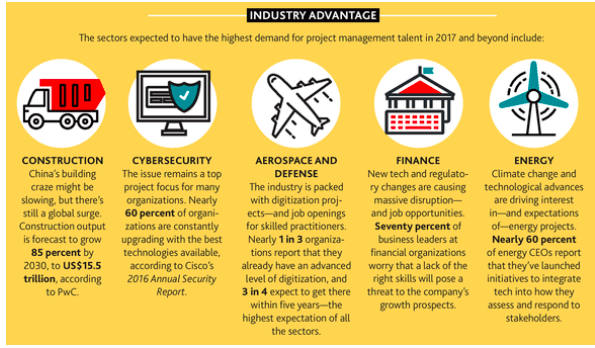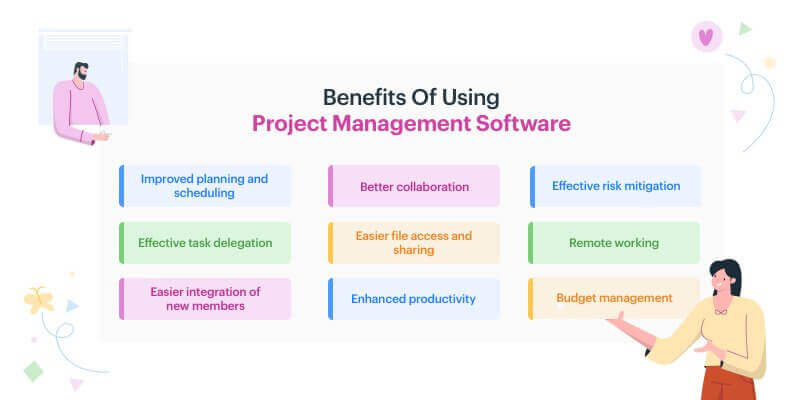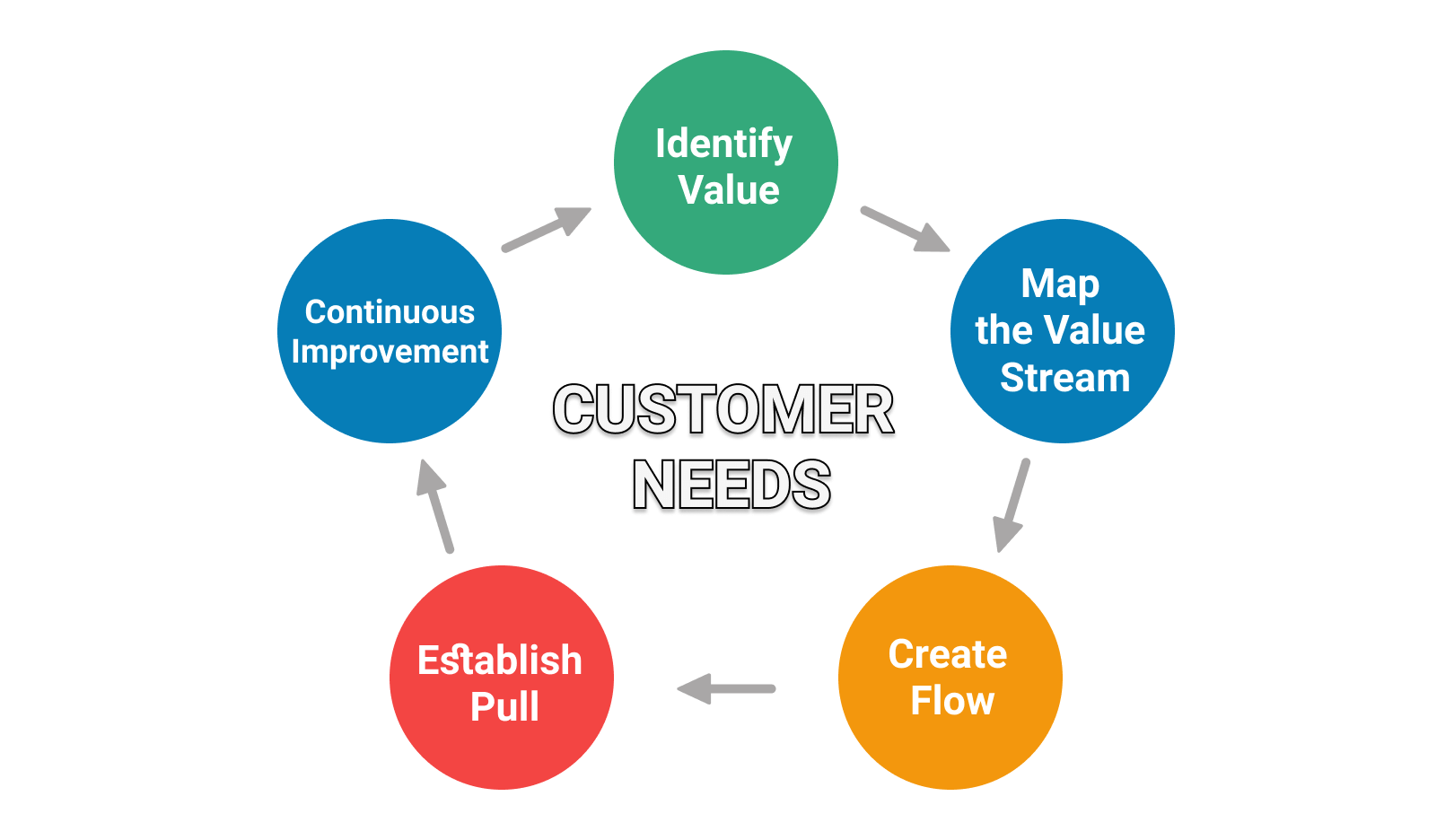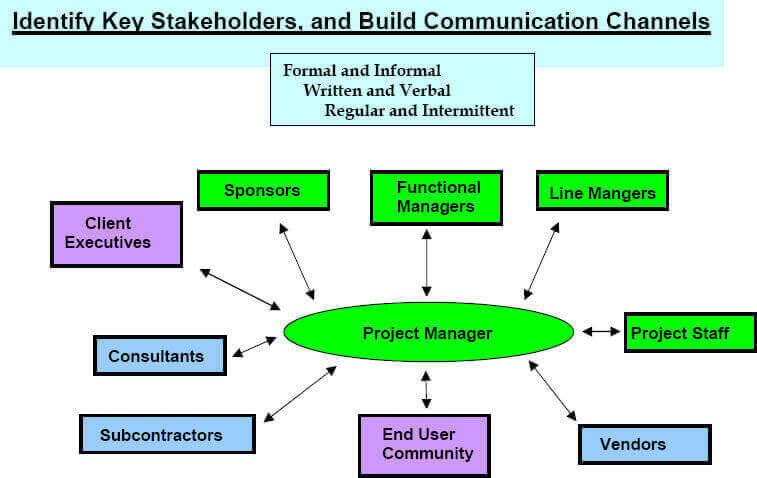Top 8 Technical Project Management Skills Every Project Manager Needs
Modern-day businesses require highly skilled project managers. Project management is one of the most sought-after qualities for organizations of all sizes because project managers are responsible for overseeing the complete project and performing tasks that make the project successful.
According to the CIO, organizations who implement project management (PM) practices save 28 times more money than their counterparts who do not have PM best practices in place. Without the right talent and strategy, project schedules, timelines, and budgets remain elusive. In 2020, only 43% of all projects were completed without requiring additional funding to reach the original deadline. Even worse, a considerable number of respondents don’t track their budgets at all.
If you are planning a career as a project manager, this is a great time to upskill. As a project manager, you can help your business cope with the challenges posed by the pandemic. However, to make an impact, you will need project management skills.
Along with relevant technical skills, project managers must gain competencies and soft skills. A report by Project Management Institute (PMI) found that if the project manager possesses a mix of technical and management skills, the project success rate increases by 40%.
The Increasing Demand for Project Management Skills
Those in the IT industry understand the rising demand for project management skills. Computer World ranked project management as one of the hottest skills for 2017. At the same time, PMI predicted a dramatic increase in the demand for project-related skills starting from 2017 through 2027. PMI projects that for each year during this period companies across the world will have to fill around 2.2 million project-oriented roles.
Despite the growing number of job postings, a serious shortage of candidates with project management skills creates a massive talent gap. As competition becomes intense across industries, the search to find professionals with excellent project management skills grows fierce.
How Much Do Project Managers Make?
In the US, entry-level project managers receive an average annual salary of $70,249, while senior managers make up to $102,318. According to Glassdoor, the most skilled project managers earn more than $142,000/year.
Also, project managers who obtain an industry-recognized credential, such as the PMP certification training from GreyCampus, have an edge over their non-certified counterparts. Research by PMI also revealed that PMs with a PMP certification receive 20% higher annual salaries than non-certified PMs. The study found that the median salary of a certified PMP was $111,000, as compared to $91,000 of a candidate without a PMP certification.

Source: St. Petersburg College
In this growing climate, many industries are looking for project management skills. Project managers are in high demand in IT, telecom, healthcare, aerospace and defence, finance, energy, construction, and manufacturing. Project management is a rewarding career path with many opportunities to learn and grow. If you love managing projects, this is an ideal career choice for you. You’ll just need to gain the right technical project management skills.
Top 8 Technical Project Management Skills Every Project Manager Needs
While some project management skills and competencies vary depending on the industry, there are some technical skills every project manager needs, regardless of the type and scale of projects they oversee. From understanding how to document and manage tasks and budgeting and financial modeling to using project management tools, the project manager serves as a central hub for all things related to the project. Let’s look at the top 8 technical project management skills all project managers need.
1) Know How To Use Project Management Tools
Several technical and business tools help a project manager do the job effectively. They include:
- Scheduling tools, such as Gantt charts
- Agile tools, such as Kanban and Scrum
- Workflow tools for project management, such as Asana
- Communication tools for collaborative messaging, such as Slack

Source: Kissflow
To ensure each project runs smoothly, a project manager needs to know how to use various software and tools. When the need arises, the manager might also be asked to teach other team members to use these applications. Knowing how to use an appropriate project management tool helps the PM decide which software is best to solve the issue at hand, thereby increasing project efficiency.
Some commonly used tools for the PM include:
- Monday – for workflow automation
- Celoxis – For reporting capabilities
- Forecast.app – For managing projects, resources, and finances in one tool
- Wrike – Agile project management tool
- ClickUp – Free plan for project management
- FunctionFox – For creative teams and agencies to collaborate
- Nutcache – Scrum project management tool
- TeamGantt – For Gantt charts
- Slack – For chat capabilities
- ProWorkflow – For task management
2) Excel in Document Development and Task Management
A key technical project management role includes developing project documents and assigning tasks to team members. It is crucial to record specific tasks, processes, and procedures for a project. Detailed instructions help team members determine what they need, in order to achieve their project milestones. The documentation should ideally have the right details mentioned in a clear and easy-to-understand way. With effective task management, a project manager can boost productivity by reducing errors. It is vital to assign the right tasks to relevant people, track their progress, and monitor the performance of each task.
3) Familiarize Yourself With the IT Infrastructure
Successful project managers have an in-depth knowledge of IT systems related to their projects. Understanding IT infrastructure capabilities helps project managers establish desired outcomes and make sure that the project aligns with the corporate goals. It becomes a problem if the technology used cannot support the project. The main responsibility of a project manager is to coordinate with technical subject matter experts to schedule deliveries appropriately. They may need to communicate the technical aspects of the project to other departments, such as sales and marketing. Technical project management software skills come in handy when explaining technical details to team members not familiar with IT infrastructure.
4) Implement IT Quality Management Metrics
Quality metrics systems need to meet are an important part of every IT project. The PM’s responsibility is to understand those metrics and how the systems and software should be designed to meet them. Also, focusing on the wrong part of a project makes a big difference when testing performance. For example, if you fail to inspect the quality of a network cable, it could result in storage underperformance at later stages.
5) Utilize Lean Thinking
Lean thinking involves applying Lean principles to project management, as perfected by car manufacturer Toyota. Using Lean thinking can help a PM reduce waste, letting the processes become more efficient, more predictable, value-oriented, and sustainable. Using Lean project management, you can bring more value to your customers quickly and continuously, using the 4 steps: plan, do, check, and act.

Source: Kanbanize
6) Develop Budgeting and Financial Modelling
Financial literacy is such an important project management skill it should be listed on your resume. Project managers should develop and review budgets and manage project expenses. When dealing with vendors, strong negotiation skills become an added benefit. With a strong understanding of finances, a project manager can allocate resources effectively and ensure that every team member has what they need to complete their jobs.
Budgeting also includes reviewing the project scope. For example, the marketing department should never add deliverables to a project without consulting the development team responsible for completing the deliverables. When there is no room in the budget for a scope increase, the project manager must reallocate funds while negotiating the scope of work with the departments involved.
7) Communicate With All Departments
A critical skill every PM should have is business communication. They must communicate using language the audience can understand. For instance, with the software development team, the project manager should speak in technical terms, but use business terms with the sales team.

Source: PMI
In addition, the project manager needs to know the right tone and communication channel to use, so that the message does not get lost amid the long threads. Further, project managers must have excellent written forms of communication, such as reporting, analysis, and evaluation. Written communication must clearly outline metrics and results the business leaders need to make critical project decisions.
8) Master Resource Forecasting and Project Tracking
Resource forecasting is the process of predicting project resource metrics, such as demand, supply, vacancy, and resourcing cost in advance. Using this, a business can act proactively and implement preventive measures.
Before a project kicks off, project managers can ensure their team is suitably staffed and equipped to respond to unforeseen issues at any point during the project lifecycle. Alongside, forecasting estimates the workload, skills required, financials, and supports companies’ need to achieve profitable resource utilization.
Further, tracking the project helps project managers compare actual versus planned progress, identify issues that are preventing the project from staying on schedule, and if they are overusing the budget. This project management skill helps stakeholders know the work that has been done, identify resources used to execute the tasks, measure project variance, and track milestones.
How Can You Master Technical Project Management Skills?
Even the best project managers were not born with project management skills. Investing in themselves and continuously learning the skills to stay in the game contributed to developing their project management skills.
If you want to start a career as a project manager, here are ways to learn the necessary skills.
1) Professional Certifications – The Project Management Professional (PMP) certification offered by the Project Management Institute (PMI) offers training and workshops for beginners and experienced professionals to improve their skills and competencies. By enrolling with GreyCampus, you can take advantage of their PMP instructor-led training.
2) Books and Blogs – There is published material that can help professionals easily learn project management basics and how to apply them in your organization.
3) Practical Experience – If you are beginning your journey in project management, interning under a certified or skilled project manager can help you learn the tricks of the trade.
Importance of GreyCampus’s instructor-led training
Earning a certification in project management can help you learn how to manage different stakeholders involved in a project. The GreyCampus PMP training course covers the technical skills a project manager needs to be effective in a project environment, along with the tools and methods to manage costs, schedules, risks, and quality. With this training, you’ll be prepared for every question asked in the PMP certification exam.
Learning components include:
- Live Bootcamp – The bootcamp enhances your learning skills, and the workbooks and cheat sheets help you solve critical problems with ease.
- Simulated Exams – Access to simulated exams helps you analyze how well prepared you are for the exam. The analytics show areas that require more work.
- Mentorship – To ace the PMP exam, our experts are available for interactive exam-solving sessions.
- Certification – GreyCampus also provides a course completion certification, showing you’ve passed the exam.
- Study Plan – Our study plan comes with gamified learning modules and courseware for both online and offline use.
- Live Support – Dedicated instructors help solve your subject-related doubts and are available 24/7.
With experience, you will learn that when it comes to communication, there is no one size to fit all. The best project managers adjust their leadership style based on the changing needs of the project.
Putting It Together
Certification and experience are both critical, serving different purposes. On one hand, the PMP certification provides project managers with the tools, best practices, and fundamentals needed to be effective, both in technical and soft skills. On the other hand, you need the experience to apply the concepts and tools, turning theories into practice. GreyCampus PMP training course has PMP-certified instructors who will help you learn the nitty-gritty of passing the certification exam in one go.
Want To Master Project Management Skills? Get PMP Certified Today!